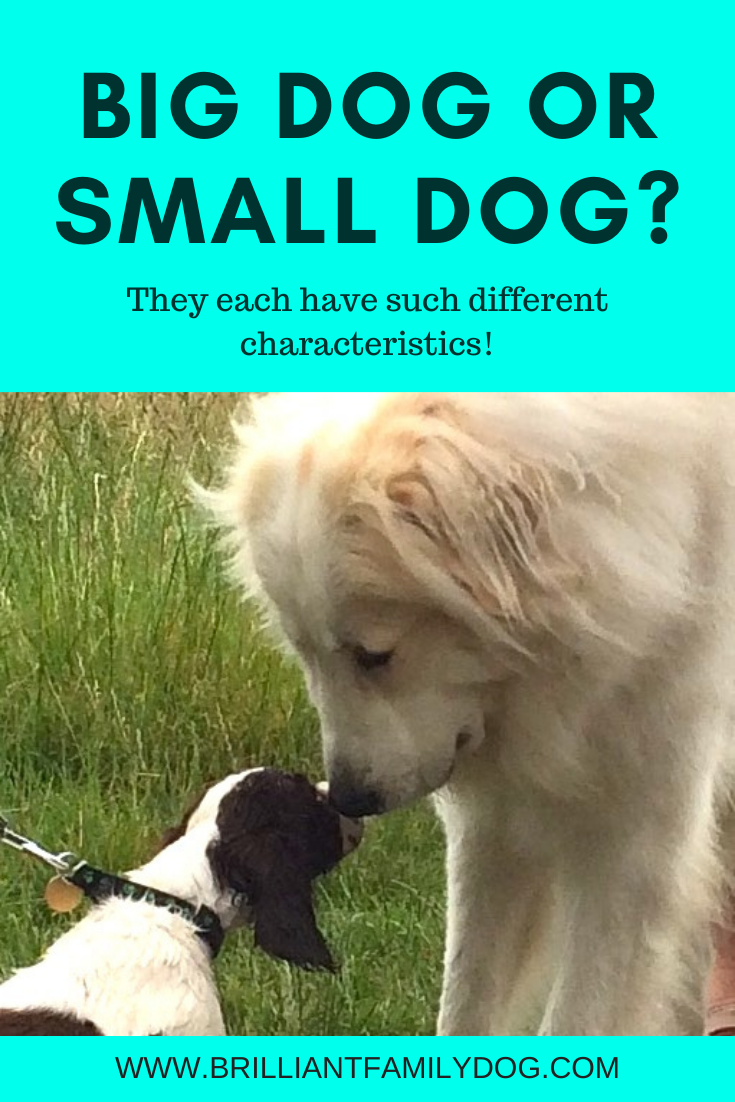There’s a great debate raging about whether small dogs or large dogs (or medium dogs!) are better.
And all parties are convinced their dog is the best size!
Having had dogs from very large down to miniature, and a lot in between, I can say that each of them has HUGE good points (and some not-so-good) often having nothing to do with their size.
It really comes down to Horses for Courses.
If you want to do Search and Rescue, you need a robust dog who can walk for miles through difficult terrain = medium to large dog.
If you want to do small dog agility = small dog!
If you want a quiet easy-to-manage dog = usually the medium to larger end of the size scale.
You want a lap dog … depends on the size of your lap! 😊
And so it goes on - there’s no one size fits all! It really depends what you want.
“Small dogs yap!”
It’s true that when small dogs bark it tends to be a yap, and more sustained. They need to make up in volume what they lack in stature. And this noise can grate with many people, whereas a more manly woof is often more acceptable to our human ears.
So small dogs make great house alert dogs. And many are willing and able to follow through with their teeth!
Bigger dogs look more menacing by virtue of their size. And where the big dogs can block a path nicely, the medium to small dogs often win out on speed and manoeuvrability.
Big dogs need big space
Bigger dogs need bigger beds, bigger homes, bigger crates, bigger cars, bigger gardens, bigger food bowls and more food, and they cause bigger vet bills as meds are usually charged by volume.
And while the really big dogs need a large space to stretch out in, the ability of many medium-size dogs, like Border Collies, to curl up into a tiny ball - is remarkable.
Small dogs can fit in a shoebox
And, of course, small dogs have much fewer requirements - for food, housing, bedding, vet bills, and so on. And if you want a lap-dog - or as the ancient Chinese called them, “sleeve dogs” - then a small dog is what you’ll probably prefer.
But what about their character?
This is where the findings of a Lincoln University study are important to understand.
One of the key findings is that
There is more variation between individuals than between breeds
In other words, breed or type - while giving clues to certain behavioural traits - does not necessarily define the dog.
You can get shy Jack Russell Terriers, Collies that have no herding drive, lazy Whippets, scared German Shepherds, quiet Pomeranians, plodding Working Cocker Spaniels.
They are the exceptions that can prove the rule! But they sure exist.
And if you choose a crossbred puppy, you’re taking pot luck!
What it all boils down to is that you work with the dog in front of you, rather than the dog you wish you had.
This can lead to a measure of disappointment - especially if you got that dog specifically for its working ability, for agility or nosework for instance. It’s the same disappointment you may experience if your competition hopeful has a bad injury.
Thing is, that dog is a person. He is himself. And that’s who we love.
So when it comes to choosing a dog for your family, take everything into account, do your sums, brush up on Probability Theory, and follow your heart!
And for a kind and effective process that works with ALL dogs, regardless of shape, size, or temperament - watch our free Workshop on getting your dog to LISTEN!


